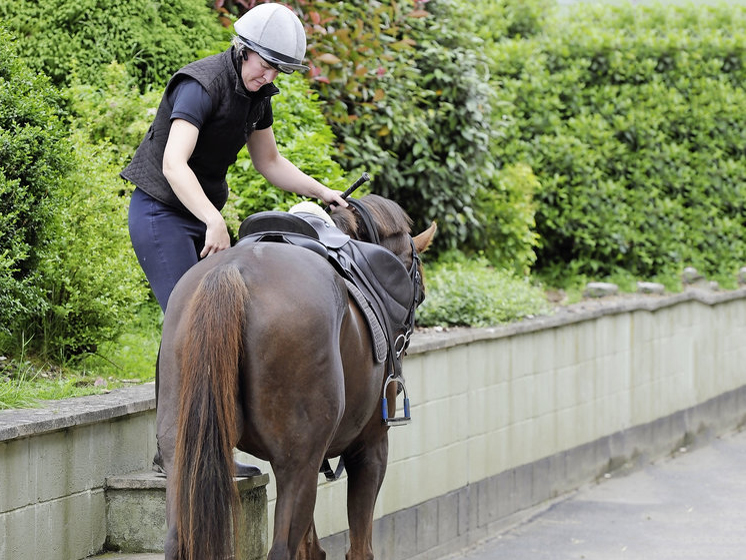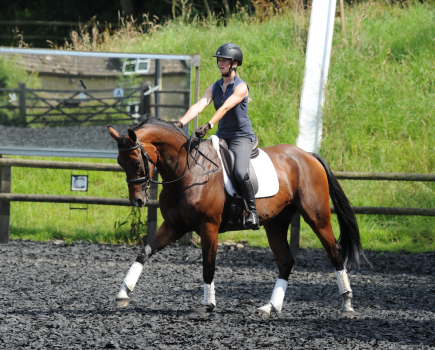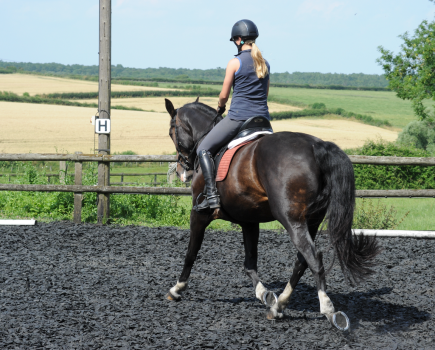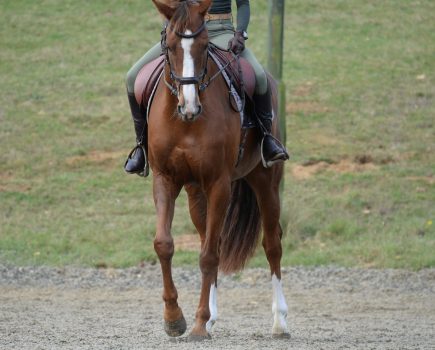Clicker training is a marker training protocol, using a noise paired with a reinforce which, in the case of a horse, could be scratches or food.
When the bespoke noise is made, once trained, the horse learns to work out exactly what it has just done, which will then achieve the treat.
Melanie Watson, behaviour consultant and horse trainer, explains how clicker training could be used to teach your horse to stand at the mounting block.
If you decide to become a positive partner by using positive reinforcement to train mounting block issues, or any other issues for that matter, then there are new skills to be learned.
Shaping any future behaviour means we need to break it down into many tiny parts, which progressively develop into the whole end game behaviour.
Mounting troubles
First, we must consider the likely behaviours contributing to unsuccessful use of a mounting block. Horses may exhibit one or more of the following:
- Trying to walk away
- Looking at the rider, with his haunches as far away as he can manage
- Fidgeting or snatching at the reins
- Stamping his feet
- Snorting at the rider above him
Snorting is fear. Stamping is frustration. All the rest are avoidance behaviours. So, now we need to ask why:
- Is the horse fearful of the block or of being mounted? Has he had a fright here before, or been told off and forcibly moved around to re-present?
- Is the horse confused about what is being asked of him?
- Is the block – or the route to it – in a scary place? Your horse could be at his emotional threshold before he even reaches the block.
- Is the horse in pain? Memories of back pain and fearful times remain in place forever, unless addressed.
Positive partner
The skill is to set your horse up to succeed; give him choice, let him experiment to find out exactly what he got clicked and rewarded for, and then gradually build it up.
These tiny steps are called approximations. The more steps you can create, the easier it is for your horse to learn what you want in actions.
People can go very wrong with clicker training, however, if the foundations are not correctly established, so I would advise you to seek out a qualified equine behaviour consultant.
Don’t miss the latest issue of Your Horse Magazine, jam-packed with training and veterinary advice, horse-care tips and the latest equestrian products available on shop shelves, on sale now.









